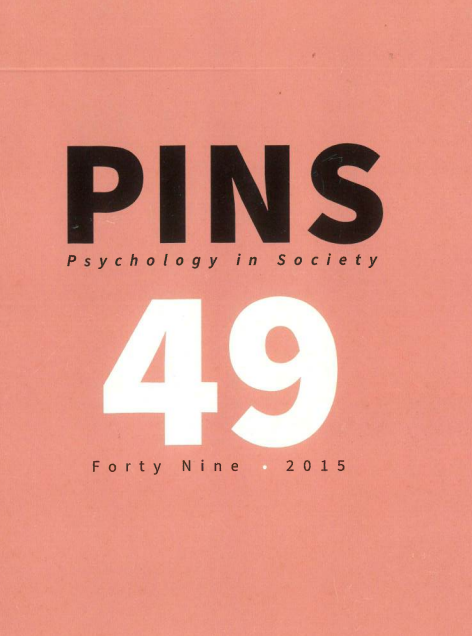“Burn the witch”: The impact of the fear of witchcraft on social cohesion in South Africa
DOI:
https://doi.org/10.17159/2309-8708/2015/n49a3Keywords:
witchcraft, witchcraft accusations, violence, fear, social cohesion, mob violence, gender based violence, violence against womenAbstract
This paper explores beliefs about witchcraft in a sample of community members in South Africa with the aim of showing that the fear of bewitchment dislocates important linkages and networks between people. This is most evident in relation to the violent consequences associated with witchcraft, particularly affecting those who are accused. Interviews with community members in South Africa provide us with a context to understand the emotional response discourses that witchcraft opens. This allows comments on how witchcraft beliefs are fused with fear, which mobilises community members towards behaviour against those accused. As a consequence, violent behaviour becomes an acceptable outlet in coping with witchcraft accusations. It is argued that increased distrust amongst community members related to witchcraft leads to tension and interpersonal conflict, therefore breaking down networks essential to ensuring harmony.
Downloads
Downloads
Published
How to Cite
Issue
Section
License
This journal is an open access journal, and the authors' and journal should be properly acknowledged, when works are cited.
Authors may use the publishers version for teaching purposes, in books, theses, dissertations, conferences and conference papers.
A copy of the authors’ publishers version may also be hosted on the following websites:
- Non-commercial personal homepage or blog.
- Institutional webpage.
- Authors Institutional Repository.
The following notice should accompany such a posting on the website: “This is an electronic version of an article published in PINS, Volume XXX, number XXX, pages XXX–XXX”, DOI. Authors should also supply a hyperlink to the original paper or indicate where the original paper (http://www.journals.ac.za/index.php/pins) may be found.
Authors publishers version, affiliated with the Stellenbosch University will be automatically deposited in the University’s’ Institutional Repository SUNScholar.
Articles as a whole, may not be re-published with another journal.
The copyright of the article(s) lies with the author(s).
The copyright of the journal lies with PINS-psychology in Society.
The following license applies:
Attribution CC BY-NC-ND 4.0 - https://creativecommons.org/licenses/by-nc-nd/4.0/

